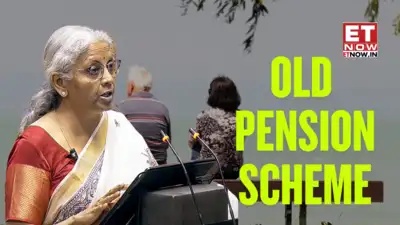
Government’s Stance on OPS Restoration
The Indian government has officially clarified that there are no ongoing discussions to revive the Old Pension Scheme (OPS) for Central Government employees, excluding armed forces. This announcement comes amid growing public interest in pension reforms and employee welfare. Finance Minister Nirmala Sitharaman emphasized that the OPS was discontinued due to its unsustainable fiscal implications, which placed a heavy burden on the exchequer. The decision to replace OPS with the National Pension System (NPS) in 2004 was a strategic move to ensure long-term financial stability for the government. While the NPS has faced criticism for its complexity, the government maintains that it provides a more sustainable framework for pension management. The recent clarification by Sitharaman addresses concerns raised by lawmakers and employees, reinforcing the government’s commitment to fiscal responsibility. However, the debate over pension benefits continues, with calls for a balanced approach that safeguards employee interests without compromising public finances.
Unified Pension Scheme (UPS) as NPS Alternative
In response to feedback on the NPS, the government introduced the Unified Pension Scheme (UPS) as a modified option under the NPS framework. This initiative aims to address gaps in pensionary benefits while maintaining fiscal sustainability. The UPS features, including redefined family parameters, are designed to ensure retirees receive assured payouts. Employees opting for UPS can also choose additional benefits under the CCS (Pension) Rules, 2021, or the CCS (Extraordinary Pension) Rules, 2023, in cases of death, invalidation, or disablement during service. The UPS was officially launched on January 24, 2025, with specific payout structures based on qualifying service years. Retirees with at least 25 years of service receive 50% of their last drawn basic pay, while those with shorter tenures get proportionate benefits. This hybrid model seeks to balance employee welfare with the need for financial prudence, offering a middle ground between the old and new pension systems.
Legacy of the Old Pension Scheme
The Old Pension Scheme (OPS) was a cornerstone of retirement benefits for Central Government employees, providing a fixed monthly pension post-retirement. Employees qualified for OPS by completing a minimum of ten years of service, with pension amounts calculated based on their last drawn basic salary and total service years. Unlike the NPS, the OPS was fully funded by the government, meaning no deductions were made from employees’ salaries during their service. Retirees also benefited from biannual Dearness Allowance (DA) revisions, which automatically increased pensions alongside inflation. However, the scheme’s financial strain led to its replacement by NPS in 2004. While the OPS offered stability, its long-term sustainability was questionable, prompting the government to pursue a more flexible and financially viable alternative. The legacy of OPS remains a point of contention, with many employees advocating for its revival or improved terms.
Reforms and Future Implications
Recent pension reforms have focused on balancing employee benefits with fiscal responsibility, reflecting broader trends in public sector financial management. The transition from OPS to NPS and the introduction of UPS highlight the government’s efforts to adapt to evolving economic conditions. While the NPS has been criticized for its complexity and lack of guaranteed returns, the UPS aims to address these concerns by offering structured benefits. The government’s emphasis on fiscal sustainability underscores the challenges of managing pension liabilities in a growing economy. Employees and stakeholders continue to demand transparency and flexibility in pension schemes, with calls for periodic reviews to ensure fairness. As the debate over pension reforms persists, the government’s approach will likely shape the future of retirement benefits for Central Government employees, influencing both policy and public perception.
Public and Political Reactions
The government’s decision to retain the NPS and reject OPS restoration has sparked mixed reactions among employees and political factions. While some support the move for its fiscal prudence, others argue that it undermines employee welfare. Lawmakers have raised concerns about the long-term impact of pension reforms on public sector workers, emphasizing the need for a balanced approach. The introduction of UPS has been seen as a compromise, offering improved benefits without compromising financial stability. However, critics argue that the scheme’s complexity may lead to confusion and dissatisfaction. As the government navigates these challenges, the focus remains on ensuring that pension reforms meet both fiscal and social objectives. The ongoing dialogue between policymakers and stakeholders will be crucial in shaping the future of retirement benefits in India’s public sector.




